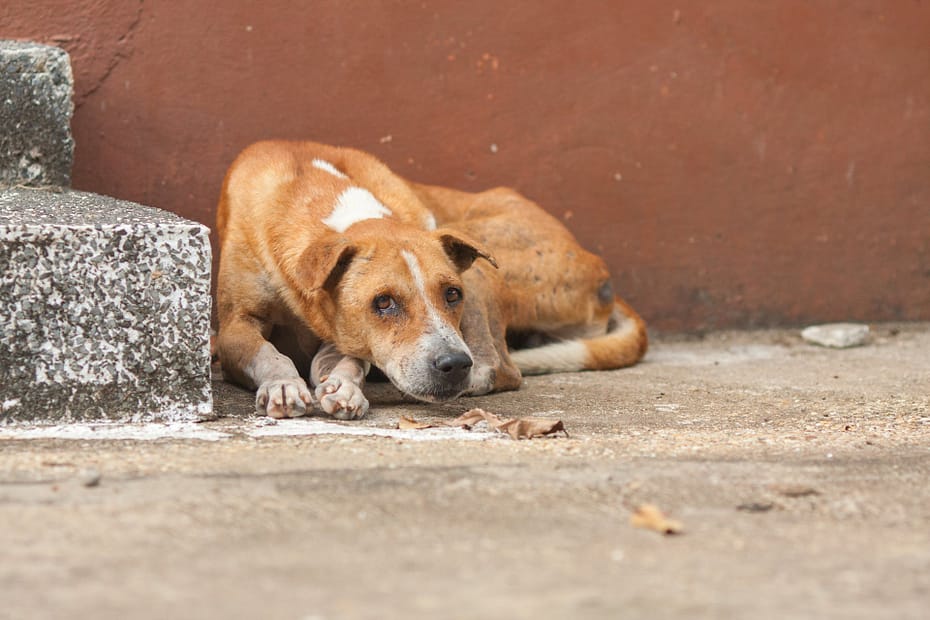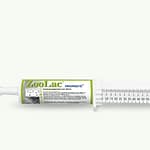Understanding Your Dog’s Loss of Appetite
A sudden decrease in your dog’s appetite can be a concerning sign. While occasional fluctuations are normal, persistent loss of appetite may indicate an underlying health issue. Several factors can contribute to this change in eating habits, including:
- Illness: Conditions like dental problems, gastrointestinal disorders, or organ dysfunction can significantly reduce a dog’s appetite.
- Stress and Anxiety: Environmental changes, separation anxiety, or fear can negatively impact a dog’s overall well-being, including their appetite.
- Medication Side Effects: Certain medications may cause loss of appetite as a side effect.
- Antibiotics: Many antibiotics can disrupt gut bacteria and lead to decreased appetite.
- Steroids: Corticosteroids like prednisone can suppress appetite, especially at higher doses.
- Non-steroidal Anti-Inflammatory Drugs (NSAIDs): These medications, often used to manage pain and inflammation, can sometimes cause gastrointestinal upset and reduced appetite.
- Chemotherapy Drugs: These drugs can have a variety of side effects, including loss of appetite and nausea.
- Certain Heart Medications: Some heart medications can affect appetite, particularly in older dogs.
- Food Aversion: Changes in diet, food allergies, or simply boredom with the same food can lead to decreased interest in eating.
If your furry friend has suddenly lost their appetite, it’s a cause for concern. Dogs are naturally inclined to eat, so a change in their eating habits could signal an underlying health issue. Here are some common reasons why your dog might be refusing food and what you can do about it:
Common Causes for Loss of Appetite:
- Illness:
- Dental Issues: Toothaches or gum disease can make eating painful.
- Gastrointestinal Upsets: Conditions like gastritis or inflammatory bowel disease can reduce appetite.
- Organ Dysfunction: Problems with the kidneys, liver, or pancreas can affect dog’s appetite.
- Infections: Viral or bacterial infections can lead to decreased appetite.
- Stress and Anxiety:
- Environmental Changes: Moving to a new home, a new pet, or changes in daily routine can cause stress.
- Separation Anxiety: If your dog is anxious when left alone, it can affect their appetite.
- Medication Side Effects:
- Some medications can cause loss of appetite as a side effect.
- Food Aversion:
- Your dog might be tired of the same food or have developed a sensitivity to certain ingredients.
- Understanding Your Feverish Dog’s Loss of Appetite
- It’s quite common for dogs with a fever to experience a loss of appetite. This is a natural response to illness as their bodies focus on fighting the infection.
- Here’s why:
- Reduced Energy: Fevers can cause lethargy and weakness, making your dog less inclined to eat.
- Discomfort: A fever can lead to discomfort, such as muscle aches or general malaise, which can decrease appetite.
- Gastrointestinal Upsets: Some illnesses that cause fever can also affect the digestive system, leading to nausea, vomiting, or diarrhea, further reducing appetite.
- What to Do:
- Monitor Your Dog: Keep a close eye on your dog’s temperature, behavior, and any other symptoms.
- Consult Your Veterinarian: If your dog’s fever persists or worsens, or if they show other signs of illness, consult your veterinarian for a proper diagnosis and treatment plan.
- Encourage Hydration: Ensure your dog has access to fresh, clean water. You can also offer ice cubes to help them stay hydrated.
- Offer Bland Foods: If your dog is willing to eat, offer small portions of bland, easily digestible foods like boiled chicken and rice.
- Avoid Forcing Food: Don’t force your dog to eat if they’re not interested. This can lead to stress and further reduce their appetite.
What to Do:
- Monitor Your Dog:
- Observe your dog for other symptoms like lethargy, vomiting, diarrhea, or changes in behavior.
- If you notice any concerning signs, consult your veterinarian immediately.
- Consult Your Veterinarian:
- A vet can perform a physical exam, blood tests, or other diagnostic tests to identify the underlying cause.
- They can recommend appropriate treatment, such as medication, dietary changes, or dental care.
- Encourage Appetite:
- Warm the Food: Warmed food can be more appealing to dogs.
- Add Flavor Enhancers: A small amount of broth or a sprinkle of cheese can make food more enticing.
- Hand-Feed: Hand-feeding can be comforting and encourage your dog to eat.
- Offer Smaller, More Frequent Meals: This can be easier on your dog’s digestive system.
- Consult a Veterinary Nutritionist: They can provide tailored dietary advice to address your dog’s specific needs.
When to Seek Immediate Veterinary Care:
- If your dog hasn’t eaten for 24 hours or more.
- If your dog is showing signs of severe illness, such as lethargy, vomiting, diarrhea, or difficulty breathing.
- If your dog is experiencing pain or discomfort.
Remember, a loss of appetite in dogs can be a serious issue. By understanding the potential causes and taking prompt action, you can help your furry friend feel better and return to their normal, healthy self.
Some Appetite Stimulant Supplements: Try these when your vet is away
- Savavet Appetite Stimulant Syrup: This syrup is designed to stimulate dog’s appetite and is often used for picky eaters or dogs recovering from illness.
- Para Canine Pet Pon Syrup: This syrup is another popular choice for stimulating appetite and promoting growth in dogs.
- Petsup Appetite Stimulant Syrup: This syrup contains essential vitamins and amino acids to support overall health and appetite.
- Aptiquick Syrup for Dogs : Aptiquik syrup increases appetite by stimulating glucose receptors in the brain. It helps in the treatment of anorexic pets that are underweight, weak, and debilitated.
High-Calorie Food Toppers:
- Nutri-Cal High Calorie Dietary Supplement: This paste can be added to food to increase calorie intake and encourage eating in dogs with low appetite.
- Other high-calorie food toppers like powdered milk replacers or nutritional pastes can also be helpful.
Remember to consult with your veterinarian before using any supplements or dietary changes, especially if your dog has an underlying health condition.

Dr. Suranjan Sarkar is a veterinarian and also a writer and editor for both print and digital with a love for travel, animal, and architecture. Much of his writing has focused on human and animal health and welfare. A life-long pet owner, His two favorite canine quotes are, “Be the kind of person your dog thinks you are,” and “Dogs communicate their feelings honestly and directly. There’s no hidden agenda or manipulation.”










Pingback: How Separation Anxiety Affects Dogs? - Pluto Pet Clinics